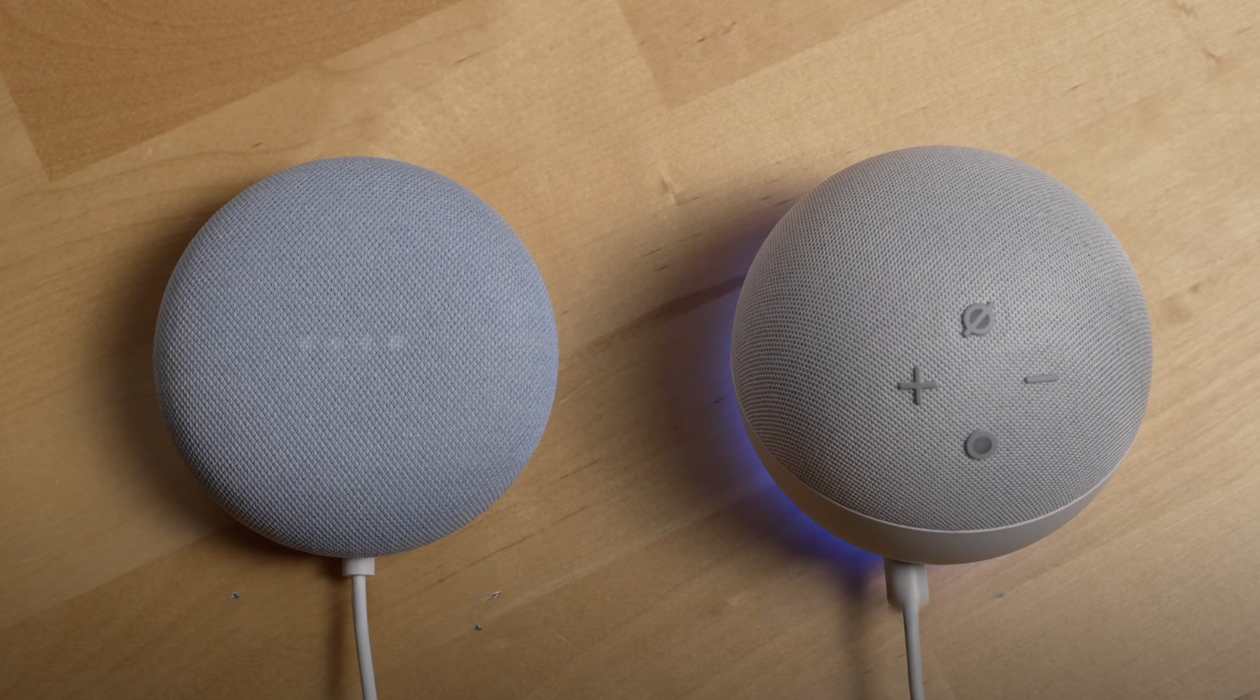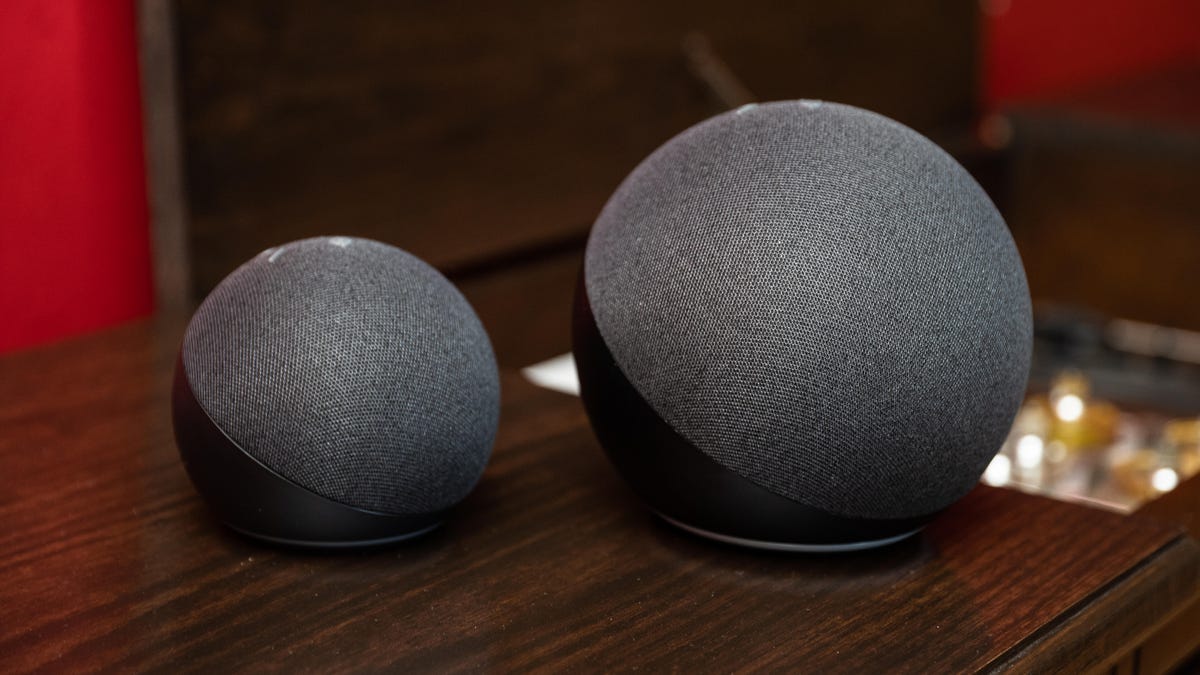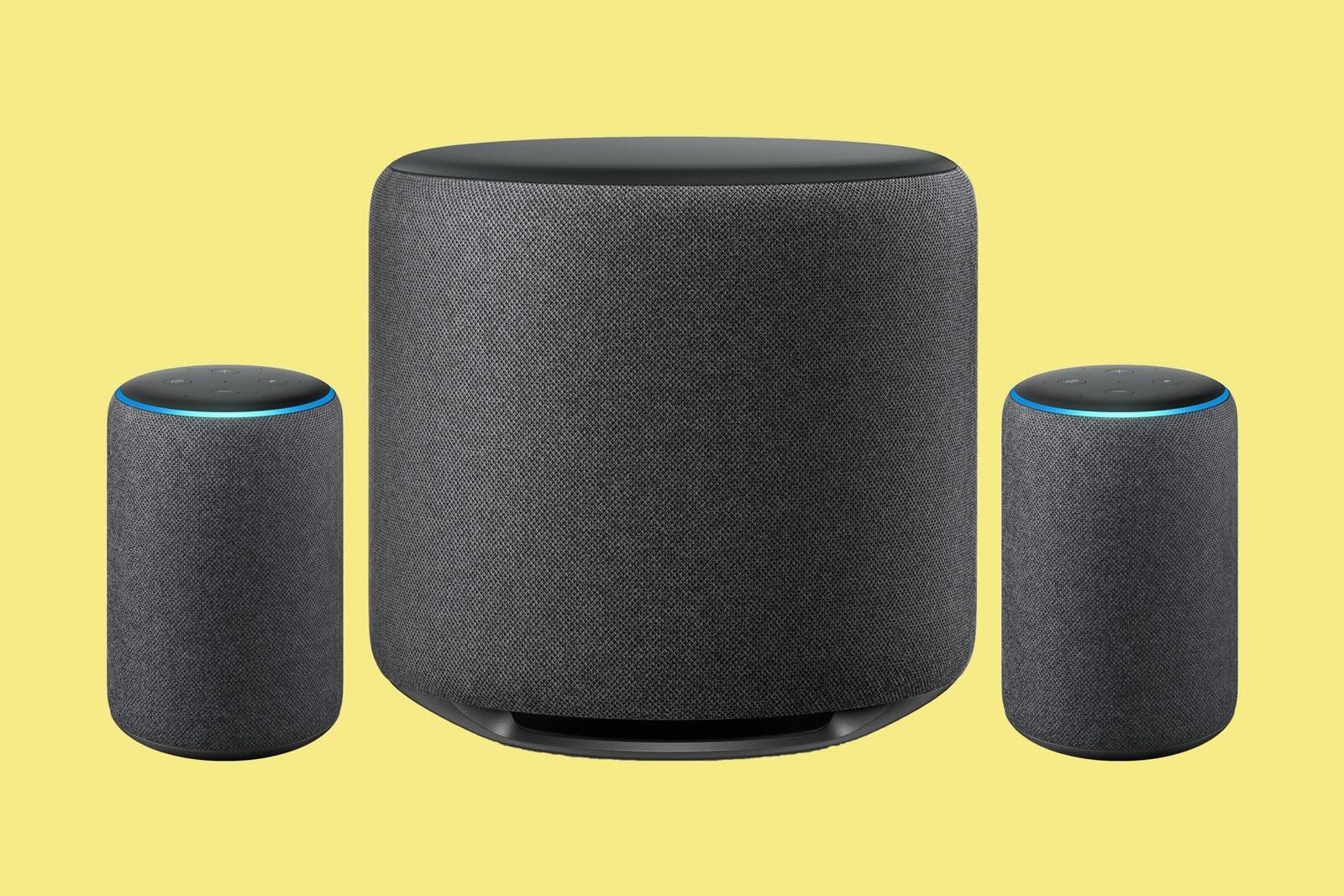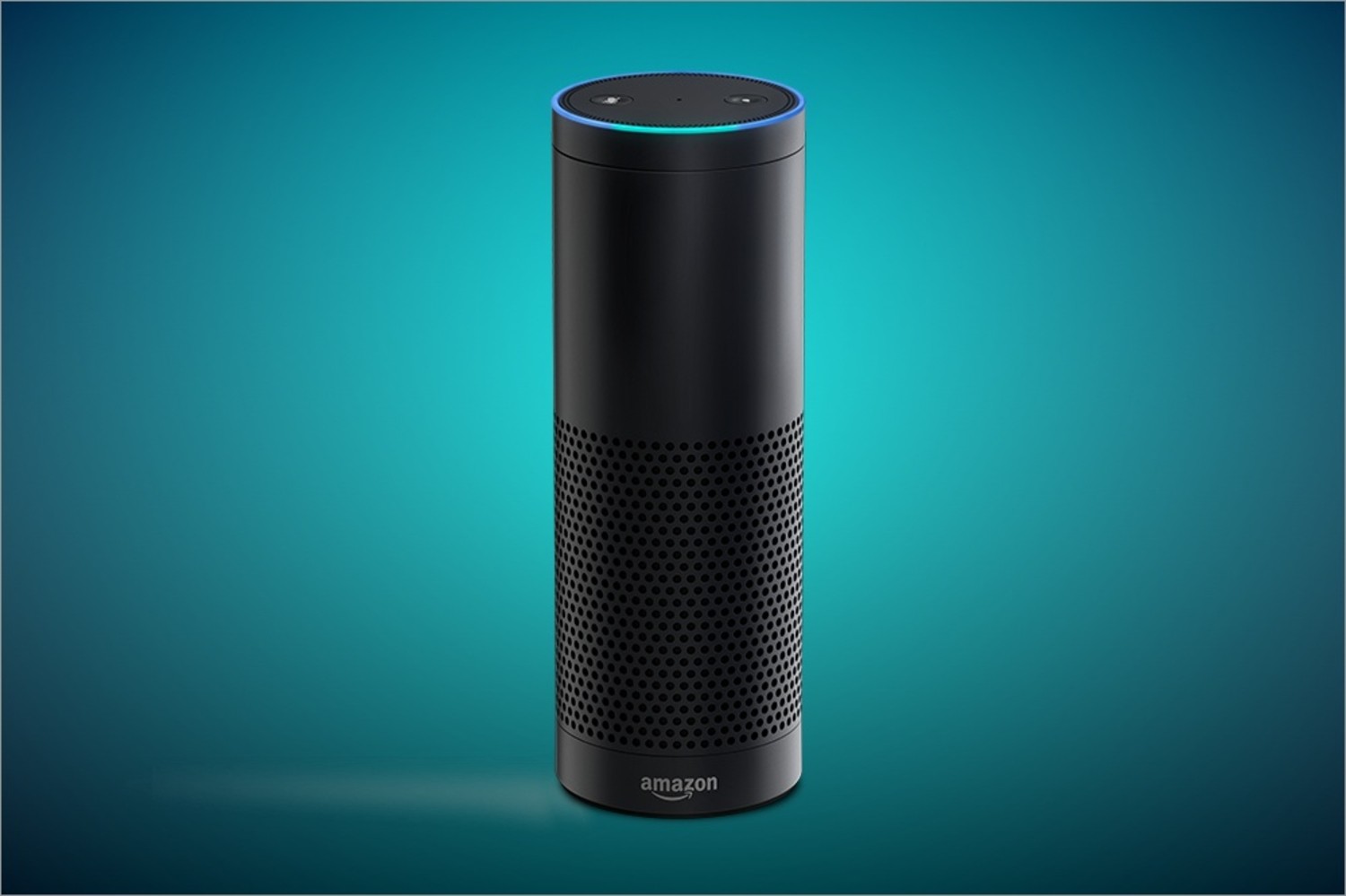Home>Home Appliances>Home Automation Appliances>What Is The Difference Between Echo And Alexa


Home Automation Appliances
What Is The Difference Between Echo And Alexa
Modified: October 18, 2024
Discover the key distinctions between Echo and Alexa to enhance your understanding of home automation appliances. Explore their unique features and functionalities now!
(Many of the links in this article redirect to a specific reviewed product. Your purchase of these products through affiliate links helps to generate commission for Storables.com, at no extra cost. Learn more)
Introduction
Welcome to the world of smart home automation, where technology seamlessly integrates with everyday living to enhance convenience and efficiency. In this era of innovation, two prominent names stand out: Echo and Alexa. These names have become synonymous with cutting-edge home automation, but what exactly sets them apart? To unravel this mystery, let’s delve into the realms of Echo and Alexa, exploring their unique features and functionalities to uncover the key differences between these game-changing devices.
As we embark on this journey, we’ll gain a comprehensive understanding of Echo and Alexa, unraveling their individual roles in revolutionizing the way we interact with our living spaces. By the end of this exploration, you’ll be equipped with the knowledge to make informed decisions about integrating these technologies into your home, ultimately elevating your lifestyle with the power of smart automation.
Key Takeaways:
- Echo is the physical device, while Alexa is the virtual assistant that powers it. Echo is like the body, and Alexa is like the brain, making them a dynamic duo in smart home automation.
- Alexa is super smart and can learn from you, while Echo is the cool gadget with speakers and microphones. Together, they make your home smarter and your life easier!
Understanding Echo
At the heart of Amazon’s foray into smart home technology lies the Echo – a groundbreaking device that serves as a hub for voice interaction, entertainment, and home automation. The Echo is equipped with a virtual assistant, Alexa, which responds to voice commands and facilitates various tasks with seamless integration. From playing music and setting reminders to controlling smart home devices, the Echo acts as a central command center, streamlining daily activities with unparalleled ease.
One of the Echo’s most notable features is its array of far-field microphones, which enable it to pick up voice commands from across the room, even in bustling environments. This ensures that users can interact with Alexa effortlessly, regardless of their location within the home. Additionally, the Echo boasts high-quality speakers, delivering immersive audio experiences for music enthusiasts and audiophiles alike.
Furthermore, the Echo serves as a gateway to a myriad of third-party skills and applications, expanding its capabilities beyond the realm of basic commands. Users can customize their Echo devices with skills ranging from recipe recommendations and fitness routines to news updates and meditation guides, tailoring the device to suit their unique preferences and lifestyle.
With its sleek design and intuitive functionality, the Echo has become a staple in modern households, offering unparalleled convenience and entertainment. As we continue our exploration, we’ll gain deeper insights into the multifaceted world of Alexa, the virtual assistant that breathes life into the Echo, bringing forth a new era of smart living.
Understanding Alexa
At the core of Amazon’s Echo ecosystem lies Alexa, the intelligent virtual assistant that powers the seamless functionality of Echo devices. Alexa represents a pioneering leap in artificial intelligence, harnessing the power of voice recognition and natural language processing to understand and execute a wide array of commands and requests.
One of Alexa’s defining attributes is its adaptability and continuous learning capabilities. As users engage with Alexa and issue commands, the virtual assistant refines its understanding of individual preferences and speech patterns, tailoring its responses and recommendations to provide a personalized user experience. This adaptive nature sets Alexa apart as a dynamic and intuitive virtual assistant, capable of evolving alongside its users.
Alexa’s versatility extends beyond basic commands, encompassing an extensive range of skills and capabilities that enrich the smart home experience. From controlling compatible smart devices and adjusting lighting to providing weather forecasts and setting reminders, Alexa seamlessly integrates with various facets of daily life, empowering users with unparalleled convenience and control.
Furthermore, Alexa’s integration with third-party applications and services amplifies its utility, allowing users to access a diverse array of skills and functionalities. Whether it’s ordering food, requesting rides, or managing finances, Alexa serves as a multifaceted digital companion, streamlining tasks and enhancing productivity with effortless voice commands.
As the linchpin of the Echo ecosystem, Alexa embodies the future of smart home automation, transcending conventional virtual assistants to become a seamless and indispensable part of everyday living. With a deep understanding of Alexa’s capabilities, we’re poised to explore the distinctive traits that set it apart from the Echo, unraveling the nuances that define these transformative technologies.
When discussing the difference between Echo and Alexa, it’s important to understand that Echo is the smart speaker device, while Alexa is the virtual assistant that operates on the Echo and other Amazon devices.
Key Differences
While Echo and Alexa are often used interchangeably, it’s crucial to recognize the nuanced distinctions between these two components of the Amazon smart home ecosystem. Understanding these differences is essential for harnessing the full potential of these technologies and optimizing their integration into your daily life.
- Hardware vs. Software: The fundamental disparity between Echo and Alexa lies in their nature. Echo refers to the hardware – the physical device equipped with far-field microphones and speakers, serving as the interface for interacting with Alexa. On the other hand, Alexa represents the software – the intelligent virtual assistant that powers the Echo and facilitates seamless voice interactions and smart home control.
- Functionality and Interaction: Echo serves as the central hub for interacting with Alexa, enabling users to issue voice commands, play music, control smart home devices, and access a myriad of third-party skills. Alexa, as the virtual assistant, comprehends these commands, processes requests, and executes tasks, leveraging its adaptive learning capabilities to tailor responses and recommendations based on user interactions.
- Adaptability and Personalization: Alexa’s adaptive nature sets it apart from the Echo, as it continuously learns from user interactions to provide personalized experiences. While the Echo’s hardware remains consistent, Alexa’s software evolves to cater to individual preferences, refining its understanding of user behavior and speech patterns to deliver tailored responses and recommendations.
- Integration with Third-Party Services: Both Echo and Alexa integrate with a wide array of third-party applications and services, expanding their functionalities beyond basic commands. However, it’s crucial to recognize that Alexa, as the software driving the Echo, serves as the primary interface for accessing and utilizing these third-party skills, seamlessly integrating them into the smart home ecosystem.
By discerning these key differences, users can leverage the unique attributes of Echo and Alexa to optimize their smart home experiences, harnessing the power of voice control, personalized interactions, and seamless integration with third-party services.
As we conclude our exploration of the disparities between Echo and Alexa, it’s evident that both components play integral roles in revolutionizing the way we interact with our living spaces, offering unparalleled convenience and innovation in the realm of smart home automation.
Conclusion
In the ever-evolving landscape of smart home technology, the dynamic duo of Echo and Alexa stands as a testament to the boundless potential of artificial intelligence and voice-activated automation. As we’ve delved into the intricacies of these transformative technologies, it’s clear that each component brings unique attributes to the table, enriching the smart home experience in distinct ways.
From its sleek hardware design and immersive audio capabilities to its role as a central hub for seamless voice interactions, the Echo embodies the tangible interface that bridges the gap between users and the virtual assistant, Alexa. With its far-field microphones and intuitive controls, the Echo represents a cornerstone of convenience and entertainment, redefining the way we engage with our living spaces.
On the other hand, Alexa, as the intelligent virtual assistant, epitomizes adaptability, personalization, and continuous learning. Its ability to comprehend and execute a diverse range of commands, integrate with third-party services, and evolve alongside user interactions underscores its pivotal role in shaping the future of smart home automation.
As we embrace the synergy between Echo and Alexa, it becomes evident that their collaborative prowess transcends the sum of their individual capabilities. Together, they form a cohesive ecosystem that empowers users with seamless voice control, personalized experiences, and effortless integration with an array of smart home devices and services.
Ultimately, the key to harnessing the full potential of Echo and Alexa lies in understanding their nuanced differences and leveraging their complementary strengths. By doing so, users can unlock a world of possibilities, from streamlining daily tasks and accessing a myriad of skills to transforming their living spaces into interconnected, intelligent environments.
As we look towards the horizon of smart home innovation, the journey with Echo and Alexa continues to unfold, promising new advancements and possibilities that will further revolutionize the way we interact with technology and elevate the quality of our everyday lives.
Frequently Asked Questions about What Is The Difference Between Echo And Alexa
Was this page helpful?
At Storables.com, we guarantee accurate and reliable information. Our content, validated by Expert Board Contributors, is crafted following stringent Editorial Policies. We're committed to providing you with well-researched, expert-backed insights for all your informational needs.
















0 thoughts on “What Is The Difference Between Echo And Alexa”